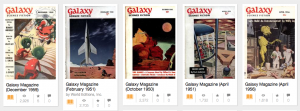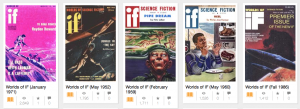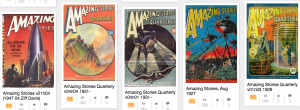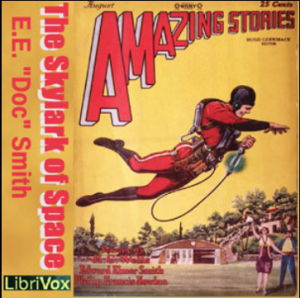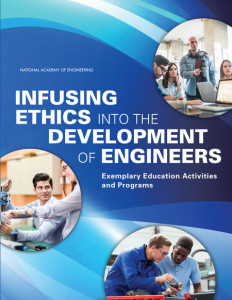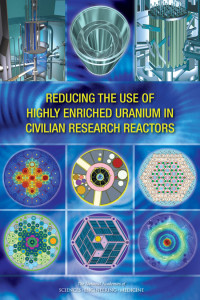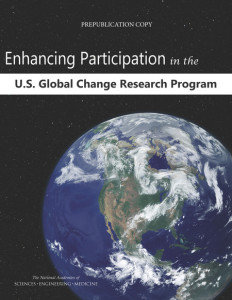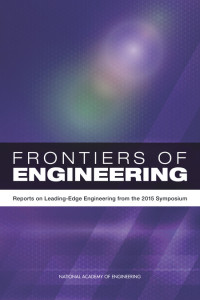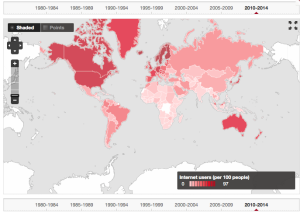Peter Lobner, Updated 9 March 2021
This post contains links to many free virtual tours and other online resources that may be of interest to you. Also check out the long list of recommended external links on the introductory webpage for Pete’s Lynx, here:
https://lynceans.org/petes-lynx/
This is a great time to explore. Happy surfing!
1. Google Arts & Culture portal:
Here you’ll find virtual tours and online collections from many partner museums and other organizations. So many, that I suggest that you try finding something of interest in the “A-Z” view. There are 145 “A’s” and 8 “Z’s,” with more than 2,500 other museums and collections in between. Start at the following link: https://artsandculture.google.com/partner
Also check out the Streetview tours of famous sites & landmarks here: https://artsandculture.google.com/project/street-view
2. MCN’s Ultimate Guide to Virtual Museum Resources, E-Learning, and Online Collections
On 14 March 2020, MCN (formerly the Museum Computer Network) posted “The Ultimate Guide to Virtual Museum Resources, E-Learning, and Online Collections,” at the following link: http://mcn.edu/a-guide-to-virtual-museum-resources/
This is a very extensive list of free online resources and their links. MCN notes, “This list will be continually updated with examples of museum and museum-adjacent virtual awesomeness. It is by no means exhaustive….. Every resource is free to access and enjoy.”
3. Library of Congress (LOC)
The LOC has a wide range of digital collections that are easy to access here: https://www.loc.gov/collections/
4. Other museums & historic places:
Here are some additional virtual tours to supplement what you’ll find on the Google Arts & Culture portal and MCN’s extensive list of links.
- The Louvre, Paris, France: https://www.louvre.fr/en/visites-en-ligne#tabs
- The British Museum, London, UK – Collection online: https://www.britishmuseum.org/collection
- The Vatican Museum, Italy: http://www.museivaticani.va/content/museivaticani/en/collezioni/musei/tour-virtuali-elenco.html
- Bayeaux Museum, France, Explore the Bayeaux Tapestry online: https://www.bayeuxmuseum.com/en/the-bayeux-tapestry/discover-the-bayeux-tapestry/explore-online/
- Solomon R. Guggenheim Museum, New York City, NY: https://www.guggenheim.org/collection-online
- Calder Foundation, Alexander Calder online digital archive: https://calder.org
- Smithsonian National Museum of Natural History, Washington, D.C.: https://naturalhistory2.si.edu/vt3/NMNH/
- Architect of the Capitol – Virtual Capitol (US Capitol complex), Washington D.C.: https://www.capitol.gov
- Getty, Los Angeles, CA: The Getty Search Gateway allows users to search across several of the Getty repositories, including almost 15,000 images recently placed in the public domain: https://search.getty.edu/gateway/about.html
- National Air and Space Museum, Washington, D.C.: https://airandspace.si.edu/stories/editorial/your-tour-through-national-air-and-space-museum
- National Museum of Mathematics: History of Mathematics Project: https://history-of-mathematics.org
- National Museum of the US Air Force, Dayton, OH: http://www.nmusafvirtualtour.com/
- National Naval Air Museum, Pensacola, FL: https://www.navalaviationmuseum.org/education/virtual-tour/
- USS Midway Museum, San Diego, CA: https://www.midway.org/360-virtual-tour/
- Mercedes-Benz Museum, Stuttgart, Germany: https://www.mercedes-benz.com/en/classic/museum/exhibition/
- Marconi Automotive Museum, Tustin, CA: https://marconimuseum.org/automotive-museum/#virtualtour
- Winchester Mystery House, San Jose, CA: https://winchestermysteryhouse.com/video-tour/
- The Virtual Russian Museum: https://rusmuseumvrm.ru/?lang=en
- A Virtual Tour of St. Petersburg, Russia: http://www.saint-petersburg.com/virtual-tour/
- Royal palaces in the UK:
- Buckingham Palace: https://www.royal.uk/virtual-tours-buckingham-palace
- Windsor Castle: https://www.royal.uk/virtual-tours-windsor-castle
5. Drone video collection:
- Browse AirVuz drone videos here: https://www.airvuz.com/collections/landmarks?id=5af321537a1e9726f31baa2e
- Browse Obsentia drone videos here: https://www.youtube.com/channel/UCxstyk5qwuQOLmWkTbYbDdg/videos
- “Drone Overflies Astonishing Car Collection—See How Many You Can Name,” 22 March 2020: https://www.caranddriver.com/news/a31881196/drone-car-collection-video/
6. Video and photographic tours:
- Visit Milosh Kitchovitch’s “Amazing Places on Our Planet” YouTube channel, where you’ll find 180+ videos in 4K Ultra HD quality, and about 80 more HD videos. These videos present the places in a natural way, like you would see them if you were visiting. Here are a few examples of what you’ll find:
- Home page: https://www.youtube.com/user/milosh9k/about
- Machu Picchu (9:17): https://www.youtube.com/watch?v=lNIEZ61PyG0
- Ancient Nara, Japan (6:40): https://www.youtube.com/watch?v=WeLKdbkRj74
- Ancient Monuments of Egypt (19:56): https://www.youtube.com/watch?v=Dtw2vfKihXA
- Old Istanbul & The Bosphorus (10:41): https://www.youtube.com/watch?v=6t-VoZaU3xc
- Goblin Valley, Utah, USA (6:36): https://www.youtube.com/watch?v=PLI6R7mcVJU
- Virtual Visit Tours – 360 degree photographic visits to many sites in Ireland, including the two examples listed below: https://www.virtualvisittours.com
- Jameson Distillery, Cork, Ireland: https://www.virtualvisittours.com/jameson-experience-midleton/
- Kinbane Castle: https://www.virtualvisittours.com/kinbane-castle/
While you’re browsing these, you’ll find many similar YouTube videos and photos from other sources on the sidebar of your screen.
7. TED Talks:
More than 3,300 talks to stir your curiosity: https://www.ted.com/talks
8. Internet Archive:
Check out the Internet Archive, which is a non-profit library of millions of free books, movies, software, music, websites, and more. The main website is here: https://archive.org. Direct links to some of the specific parts of the Internet Archive are here:
- Books to borrow: https://archive.org/details/inlibrary?sort=creatorSorter
- Open library: https://openlibrary.org
- Video (Moving image archive): https://archive.org/details/movies
- Concerts (Live music archives): https://archive.org/details/etree
9. Open Culture:
The best free cultural & educational media on the web, with more than 1,500 free online courses from top universities, 1,150 free movies, 700 free audio books, 800 free eBooks, 300 free language lessons, 15,000+ free Golden Age comics from the Digital Comic Museum, and more: http://www.openculture.com/freeonlinecourses
Also visit these related websites:
- More than 22,000 free Golden & Silver Age comics, from the Comic Book Plus Archive: http://www.openculture.com/2014/03/download-over-22000-golden-silver-age-comic-books-from-the-comic-book-plus-archive.html
- More than 15,000 free Golden Age comics, from the Digital Comic Museum: https://digitalcomicmuseum.com
- Free coloring books from the world-class libraries & museums: http://www.openculture.com/2016/02/download-free-coloring-books-from-world-class-libraries-museums.html
10. Libraries:
- Smithsonian Digital Library: https://library.si.edu/digital-library
- Browse online books by topic here: https://library.si.edu/books-online/topic
- View online exhibitions here: https://library.si.edu/exhibitions/online
- Biodiversity Heritage Library (BHL): This is an open-access digital archive that preserves images and documents related to botany, wildlife and biodiversity. More than 150,000 such artworks are freely available for download here: https://www.biodiversitylibrary.org
- New York Public Library digital collections: Explore 890,000 items digitized from The New York Public Library’s collections. This site is a living database with new materials added every day, featuring prints, photographs, maps, manuscripts, streaming video, and more: https://digitalcollections.nypl.org
- British Library: Browse digitized manuscripts, sound recordings, doctoral theses and more. https://www.bl.uk/catalogues-and-collections/digital-collections
- The Wright Library – over 10,000 books, periodicals, photos and items related to architect Frank Lloyd Wright: http://www.steinerag.com/flw/index.htm
11. Maps & Globes:
- Lisa Poirot, “100 Amazing World Maps,” 6 March 2020: https://www.farandwide.com/s/amazing-world-maps-74d6186e6d0e414b
- British Library digitized historic globes: https://sketchfab.com/britishlibrary/collections/bl-globes
- New York Public Library, Open Access Maps, more than 20,000 cartographic works as high resolution downloads: https://www.nypl.org/blog/2014/03/28/open-access-maps
- David Rumsey Map Collection (and look for Umberto Monte’s 1587 Planisphere): https://www.davidrumsey.com/home
- Osher Map Library, Portland ME: https://oshermaps.org/exhibitions/all-aboard/section-6
12. Additional resources:
Other authors have provided similar information in the recent articles listed below. Many of the museums listed in the following articles are accessible via the Google Arts & Culture portal.
- Katie Bourque, “Bored at Home? Here’s a Massive List of Museums, Zoos, and Theme Parks Offering Virtual Tours,” Good Housekeeping, 20 March 2020: https://www.goodhousekeeping.com/life/travel/a31784720/best-virtual-tours/
- 68 Cultural, Historic and Scientific Collections You Can Explore Online,” Smithsonianmag.com, 23 March 2020: https://www.smithsonianmag.com/smart-news/68-cultural-historical-and-scientific-collections-you-can-explore-online-180974475/
- Antonia Wilson, “10 of the world’s best virtual museum and art gallery tours,” The Guardian, 23 March 2020: https://www.theguardian.com/travel/2020/mar/23/10-of-the-worlds-best-virtual-museum-and-art-gallery-tours
- Sharon Carty, “Introducing Car and Driver’s Boredom Busters, for Kids 2 to 100,” CarAndDriver.com, 26 March 2020: https://www.caranddriver.com/features/a31933026/boredom-busters-for-kids/
- Darren Orf & Daisy Hernandez, “11 Amazing Places to Virtually Visit While You’re Stuck Inside,” Popular Mechanics, 29 March 2020: https://www.popularmechanics.com/technology/gadgets/a9638/google-street-view-locations/
- Theresa Machemer, “Explore World-Class Museums From Home With Smartify’s Free Audio Tours,” Smithsonianmag.com, 30 March 2020: https://www.smithsonianmag.com/smart-news/smartify-makes-all-its-audio-museum-tours-available-free-180974531/
- David Cellejas, “Ready, set, explore Earth from home,” EarthSky.org, 3 April 2020: https://earthsky.org/human-world/ready-set-explore-earth-from-home
- Stephen Hicks, “51 Things To Do at Home,” 5 April 2020: http://www.stephenhicks.org/2020/04/05/51-things-to-do-at-home/
